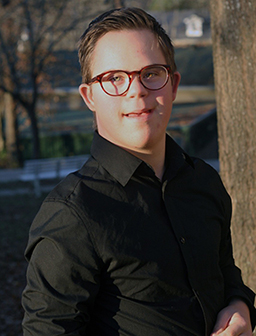Life as an Ordinary, Fun, Mess: Getting Support and Getting Connected When Your Baby Has Down Syndrome
October 5, 2016

|
I was just 23 years old when the doctors told me they suspected that my newborn baby had Down syndrome. I remember crumpling into my hospital bed when they took him from my arms and rushed him to intensive care. I worried about what the future would look like for my baby. Would other people be kind? Would he ever go to college and get married? How could we provide him the services he might need?
The next morning, a woman who worked at the hospital wrapped her arms around me and gave us the book, "Babies with Down Syndrome" and showed us a photo of her son with Down syndrome on a bike. At that moment I realized that life with Down syndrome could be fun and even ordinary, and we had a whole network of support available to us. She also told us about a subsidized program called Early Intervention* where we could get help right away with feeding issues and eventually teach him to talk, crawl, and walk.
The moment a parent learns their baby has Down syndrome is often crystallized in their memory for a lifetime. That moment can be overwhelming and isolating unless parents are offered support and information right away to help them understand what life is like for people with Down syndrome and where they can find help.
Our National Center for Prenatal and Postnatal Resources at the University of Kentucky's Human Development Institute (downsyndromediagnosis.org) offers a range of up-to-date resources about Down syndrome so that parents can receive the information and support they need right away. Our materials include vibrant images of people with Down syndrome in the context of their daily lives and information about medical issues, national support groups, employment, and health and educational services, like Early Intervention.
When parents receive support and information at the moment of diagnosis, they can start a lifelong journey of love and inclusion that enables people with Down syndrome to achieve their potential as meaningful members of their families, schools, and communities. Thanks to that vision shared with me the day after my son was born, I now have a 16 year old son with Down syndrome who is included at his school, has lots of friends (and even a girlfriend!), and a plan for employment as a photographer. Our life is as ordinary, messy, and fun as I ever hoped it could be.
*Each state and territory in the U.S. has an early intervention program partially funded by the U.S. Department of Education that serves infants and toddlers with disabilities from birth to age three and their families. Learn more about these programs.







